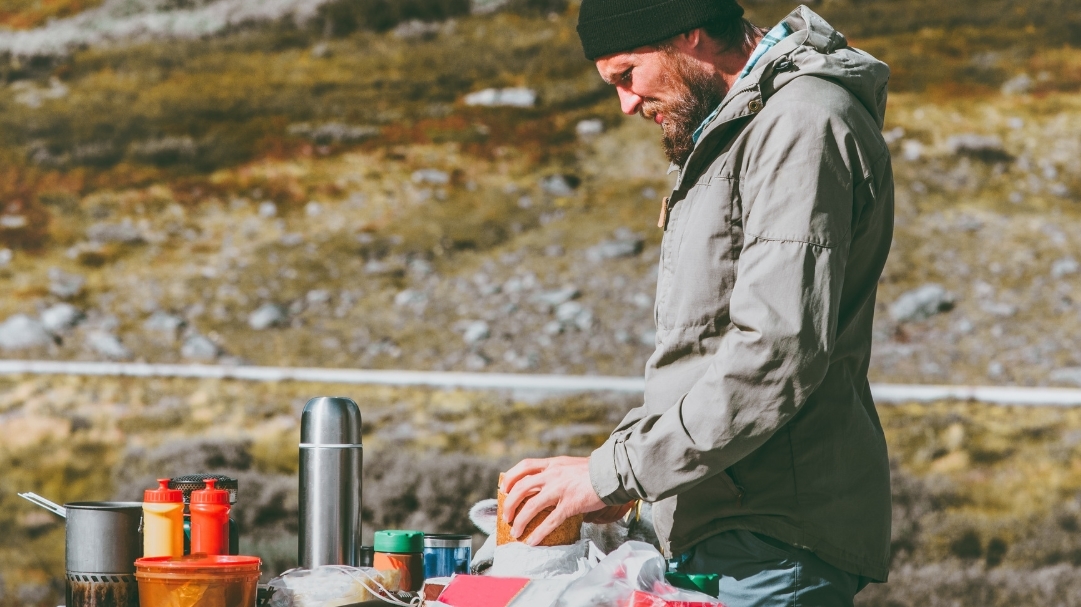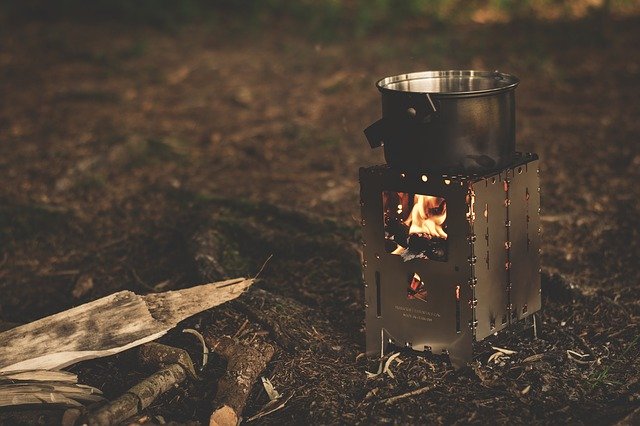Your Cart is Empty

Hey! It's Daniel from Hyke & Byke.
So, we all can agree that cooking is an activity essential to our day-to-day lives. We head into our kitchen each morning and quickly pull out pans and skillets to scramble eggs and fry some bacon.
Great, right?! Agreed, as long as you have all the right cookware and knowledge on how to use it. This is not generally a problem at home because we have plenty of space to store our large heavy cast iron skillet that we can cook just about anything in. What about when we are trekking in all our gear on our back!
Who is carrying the 12" Cast Iron Skillet?Not Me!

Cooking can be incredibly enjoyable, especially when outdoors. However, when you’re out there and you have a lot of other gear to bring, you don’t really get to have the luxury of bringing the entire kitchen with you.
If you’re just hiking on a short solo trip, then you might not need anything more than a titanium cup and a spork. However, if you’re backpacking with a group, you would need more cooking pieces.

The best place to start is determining how many you are cooking for and how lightweight are you trying to be with cooking gear. Once you have that figured out, then that information will help you decide whether you can bring a cookset or just some individual items.
Cookware Material Options
| Aluminum | Pros: Lightweight, cheap, and a good conductor of heat. Good for simmering stews without scorching. |
| Cons: Breaks down gradually when exposed to acidic foods. Dents and scratches easily. | |
|
Hard-Anodized Aluminum |
Pros: This oxidized material weathers scratches and scrapes and is durable. |
| Cons: None. | |
|
Stainless steel |
Pros: Harder, more scratch-resistant than aluminum. |
| Cons: Heavier than aluminum, doesn't conduct heat as evenly. | |
|
Titanium |
Pros: The most lightweight among available options. It is also highly corrosion-resistant, heats up quick and operates efficiently without too much heat. |
| Cons: More costly than other options. Conducts heat less evenly than stainless steel. Take care not to overheat it. | |
|
Cast Iron |
Pros: It's durable and can even be used for baking. |
| Cons: Very heavy; not for backpacking. Requires proper care. | |
|
Nonstick Coatings |
Pros: Easy to clean. |
| Cons: Not scratch and scrape resistant. | |
|
Plastic |
Pros: Lightweight, cheap, non-abrasive. Perfect for storing utensils and foods. |
| Cons: Not for cooking and just for storage. Some plastics can pick up and retain food odor. |


Comments will be approved before showing up.